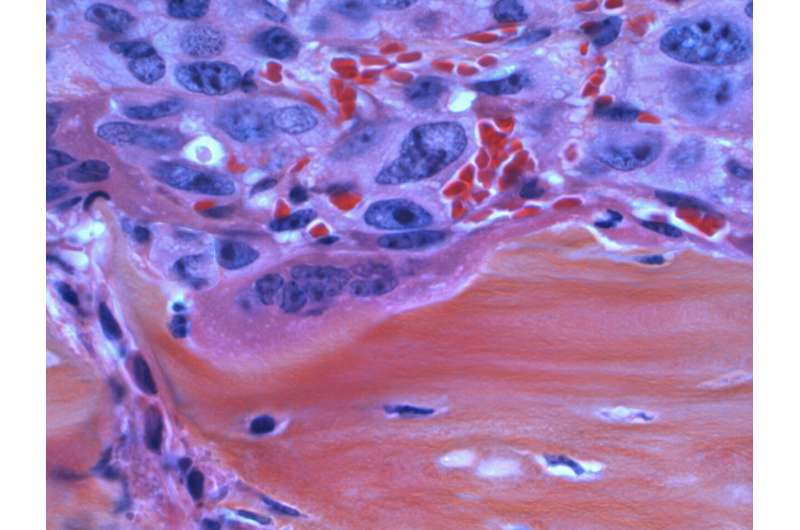Artificial Intelligence Enhances Pathologists' Interpretation of Tissue Samples

A groundbreaking study shows AI's significant role in improving the accuracy and consistency of tissue sample analysis in melanoma diagnosis, paving the way for enhanced clinical pathology.
Recent research led by Karolinska Institutet, in collaboration with Yale University, has demonstrated that AI-assisted analysis significantly improves the accuracy and consistency of pathologists examining tissue samples from skin cancer tumors. The study involved 98 professionals, divided into two groups: experienced pathologists working independently and a mixed group aided by AI technology capable of quantifying tumor-infiltrating lymphocytes (TILs). TILs are immune cells that play a crucial role in diagnosing and predicting the prognosis of malignant melanoma, with higher TIL levels generally indicating a better outlook.
The AI-supported assessments outperformed traditional methods by providing highly reproducible results, regardless of the pathologist, and offering a more precise evaluation of disease severity. This accuracy is essential for guiding treatment decisions and improving patient outcomes. Notably, as the study was retrospective, the actual prognoses were already known, confirming the AI’s potential for future clinical application.
Understanding the severity of melanoma through tissue analysis is vital for determining the aggressiveness of treatment plans. The new AI tool's ability to accurately quantify TILs suggests it could become a valuable aid in clinical pathology, enhancing diagnostic reliability and helping tailor patient-specific therapies.
While the findings are promising, further studies are necessary before implementing this AI technology widely in clinical practice. As noted by study last author Balazs Acs, an associate professor at Karolinska, the integration of AI in pathology could revolutionize how tumor biomarkers like TILs are evaluated, ultimately supporting better treatment decisions.
This research is published in JAMA Network Open and underscores the potential of artificial intelligence to advance pathology and oncology diagnostics.
For more details, visit source.
Stay Updated with Mia's Feed
Get the latest health & wellness insights delivered straight to your inbox.
Related Articles
Innovative Smartphone Tests May Speed Up Huntington's Disease Drug Development
New smartphone-based digital tests offer a sensitive and convenient way to monitor Huntington's disease progression, potentially accelerating drug development and clinical trials.
Innovative Fusion Superkine and Focused Ultrasound Offer New Hope for Glioblastoma Treatment
Innovative fusion superkine combined with focused ultrasound offers a promising noninvasive therapy for glioblastoma, targeting tumor cells and boosting immune response through advanced delivery techniques.
Uncertain Impact of Trump's $50 Billion Rural Healthcare Funding
President Trump's $50 billion allocation for rural healthcare aims to stabilize struggling hospitals, but experts question whether it will be enough to offset significant Medicaid cuts and ensure access to vital services in rural communities.
Cultural Parenting Practices Influence How Babies Are Soothed and Recover from Distress
A groundbreaking study reveals how cultural differences impact parenting strategies and infant recovery from distress, highlighting that effective soothing depends more on behavior type than response speed.



